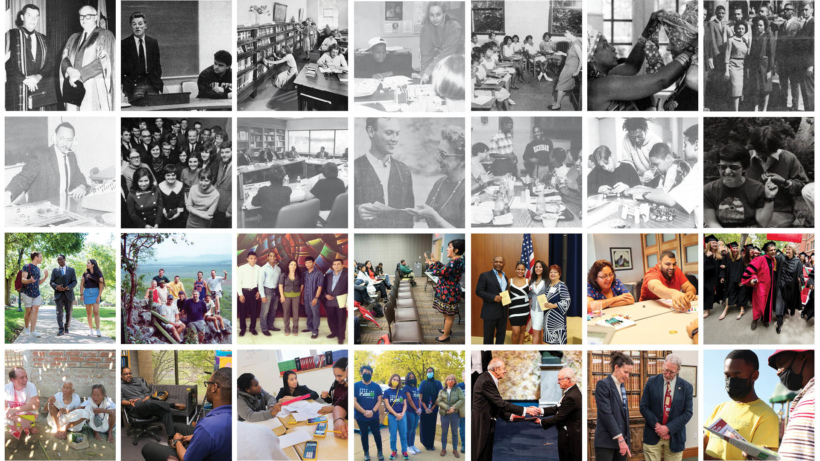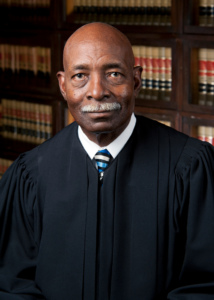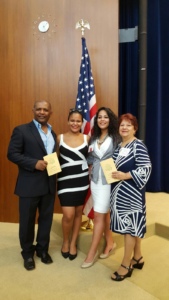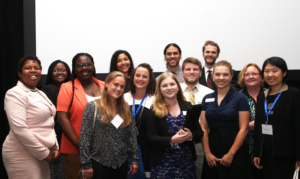New Name, Proud Legacy: History of Excellence in Education Expands

Citizens & Scholars has its roots in the Woodrow Wilson Fellowships founded at Princeton University in 1945. The Fellowships, initially designed to recruit returning World War II veterans into college teaching, were named for Princeton’s best-known president, who had introduced college teaching reforms during his time at Princeton.
Spun off from the university in the early 1950s as the Woodrow Wilson National Fellowship Foundation, the organization continued to administer the nationwide Fellowship competition. The annual selection process, including rigorous interviews by leading academics, provided a yardstick for academic excellence and a model for other fellowship programs.
Woodrow Wilson Fellowships continued to be awarded, with some modification during the program’s closing years, until the early 1970s. When the suspension of Woodrow Wilson Fellowships was announced, a New York Times editorial proclaimed the loss of funding a “moratorium on excellence.” These Fellowships provided support for doctoral study in the arts and sciences to more than 20,000 Fellows, cultivating new generations of college and university faculty.
In the 1970s, 1980s, and 1990s, Woodrow Wilson programs sought to develop opportunities in higher education by supporting both new fields and new populations. The Foundation also began to build bridges between K–12 education and higher education, providing enrichment for thousands of middle and high school teachers in a range of subjects as Woodrow Wilson Teachers in the Leadership Program for Teachers.

Justice Robert D. Rucker MLK ’74
WW programs during the 1970s, in particular, also focused on expanding access for Black graduate students and strengthening historically black college and universities (HBCUs). The MLK Fellowship offered two years of support for Black veterans pursuing graduate and professional degrees in preparation for careers in the service of society. The WW Administrative Internships recruited young leaders and scholars with expertise in development and financial management to help HBCUs meet demands for well-trained administrators.
At the same time, the Foundation continued to support doctoral education through several high-profile Ph.D.-level fellowships and by advocating for greater connection between the humanities and the public sphere. The WW Dissertation Fellowship in Women’s Studies produced scholars and leaders beginning in 1974, helping to build the new field of gender studies. Other subsequent Ph.D. support programs, like the Charlotte W. Newcombe Doctoral Dissertation Fellowship and the Mellon Fellowships in the Humanities, ensured that generations of Fellows were able to continue study in the liberal arts. These Fellows and their work underpin our understanding of ourselves as a nation.
In the early 2000s, the Foundation also began to support scholars at other points during their academic careers. The Humanities at Work Academic Postdocs, for example, offered institutional appointments to help establish humanists in early-career campus leadership positions—part of a larger WW initiative to foreground and strengthen the humanities within and beyond the academy. The Millicent C. McIntosh Fellowships for Recently Tenured Faculty supported the work of more than a dozen scholars at some of the nation’s most respected liberal arts colleges, while the Career Enhancement Fellowships were established to help increase the presence of minority junior faculty members and other faculty members committed to eradicating racial disparities in core fields in the arts and humanities. The last of these programs would also provide eventual inspiration for the Nancy Weiss Malkiel Junior Faculty Fellowships, which became the Mellon Emerging Faculty Leaders Award.

Pickering Fellows during the 2015 U.S. Foreign Service graduation.
Increasingly, the Foundation also supported professional preparation in key fields outside the academy, such as public policy and environmental conservation. The Public Policy and International Affairs Fellowships sought to diversify these fields and engage the interest of first-generation college students, including minority students, who might otherwise not have considered public service careers. This program was the precursor to the Thomas R. Pickering Foreign Affairs Fellowship Program, administered by the Foundation from 1992 to 2019. The Pickering program sought to make a significant contribution to the diversity of American diplomacy by providing financial support, mentoring, and professional development to participants as they prepared academically and professionally for a career in the Foreign Service.
In the early 2000s, WW intensified its commitment to the intersection of K–12 and higher education. First, it helped to develop a series of early colleges—partnerships between universities and schools—as well as a set of professional development programs, Teachers As Scholars, that returned secondary teachers to college classrooms. Then, in 2007, the Foundation launched the master’s-level Leonore Annenberg Teaching Fellowship as a national model for transforming teacher preparation; this became the template for the WW Teaching Fellowships. This program and the later WW MBA Fellowships in Education Leadership have collaborated with 33 colleges and universities in eight states to prepare math and science teachers for high-need schools, as well as to change the way that teachers and school leaders are prepared. During the same period, the Woodrow Wilson Rockefeller Brothers Fund Fellowships for Aspiring Teachers of Color sought to recruit, support, and retain individuals of color as K–12 public school teachers in the United States.

WW Teaching Fellows at the 2016 National Convening in Detroit.
Fellowships like the Women’s Studies Dissertation Fellowship, the Newcombe Fellowship, the Career Enhancement Fellowship, and the Mellon Emerging Faculty Leaders Awards continue today to support Ph.D. candidates and faculty at critical junctures in their careers. Fellows from the past 75 years of work at Citizens & Scholars have achieved extraordinary things in a multitude of fields as recipients of international prizes, leaders across sectors, and everyday heroes who continue to work with the next generation of citizens and scholars. We honor their capabilities and accomplishments, as well as the decades of excellence that their Fellowships represent.
In 2020, the Foundation expanded its mission to include broadening civic engagement, supporting civil discourse, and reemphasizing excellence, opportunity, and diversity in higher education. With this shift, and in light of the nation’s racial reckoning, it became clear that the organization must reconsider its name. While Woodrow Wilson’s accomplishments as a university leader and as President of the United States were historic, his racist policies and beliefs were fundamentally incompatible with the work that had evolved at the fellowship organization named for him. Citizens & Scholars announced its new name in November 2020.
Today, Citizens & Scholars is building on its legacy of excellence in education to create a better educated, more thoughtful, and more inclusive America. By working with young people, with students and faculty in higher education, and with civic leaders, we aim to rebuild the way our country develops citizens.
###
This story appeared in the fall/winter 202w issue of Fellowship, the newsletter of the Institute for Citizens & Scholars.

